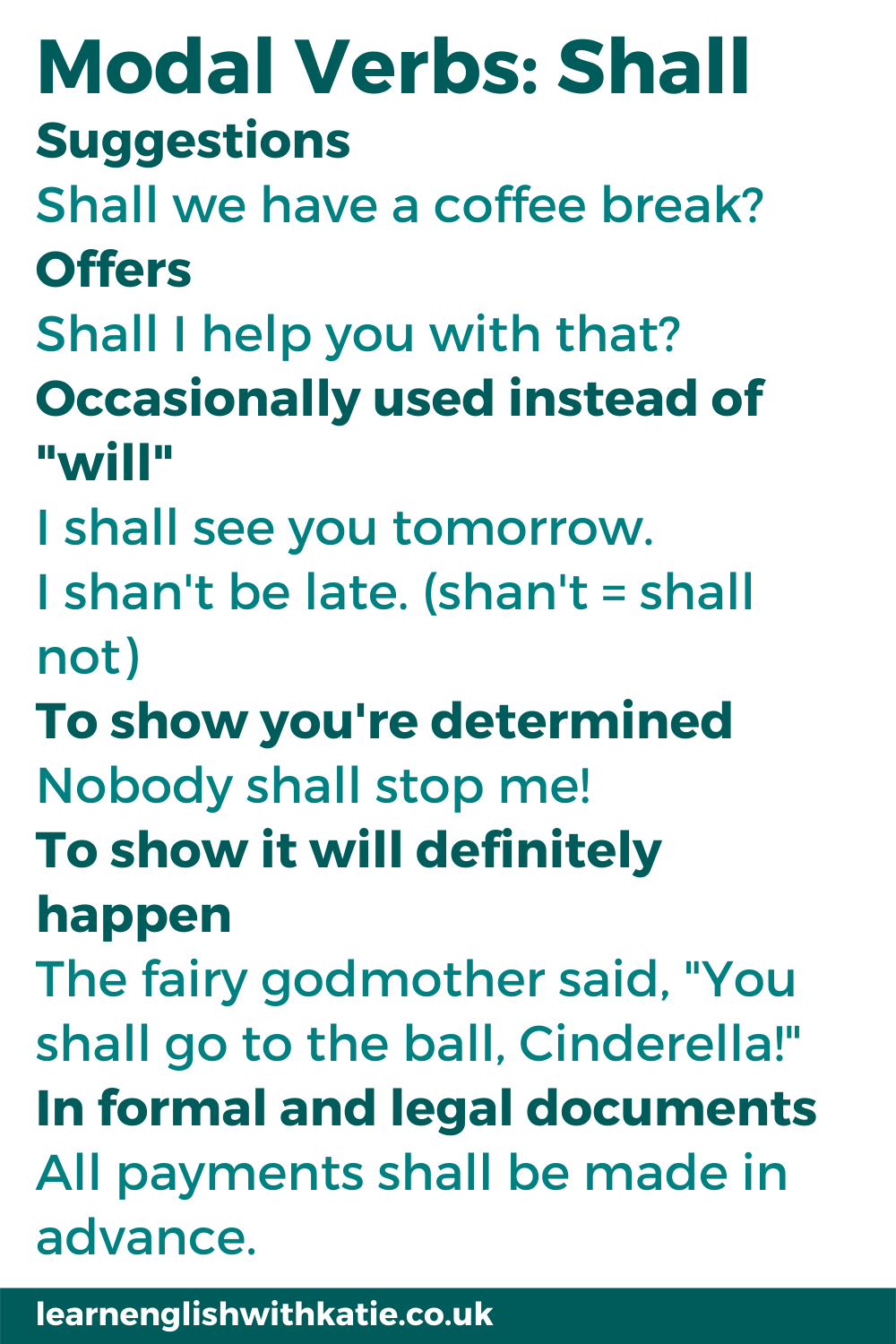|
Welcome to part 5 in my modal verb series. Today I'm going to tell you how to use "shall". Click here to see the other posts in the series so far. "Shall" isn't used quite as often as the other modal verbs but there are a couple of situations where it is common: offers and suggestions. Keep reading to learn more. "Shall" is most often used in questions and usually only with "I" and "we". If it isn't a question, and if it is "you" or "he", for example, then it is more common to use "will". For example, we might say "Shall I help you?" because it's a question and the subject is "I". However, we say "I will help you" because it isn't a question. We say "Will he help you?" because the subject is "he". These are the most common uses of "shall": 1. Suggestions Shall we have a coffee break? Let's go out for dinner tonight, shall we? What shall we do tomorrow? Shall I put the kettle on? 2. Offers Shall I help you with that? The phone's ringing. Shall I answer it? It would be unusual to use "will" in the above examples but it does happen in some regional dialects. These are some other possible uses of "shall" but they are less common: 3. Occasionally used instead of "will" (maybe old-fashioned) I shall see you tomorrow. I shan't be late. (shan't = shall not) 4. To show you're determined Nobody shall stop me! She invited me but I shan't go! No way! 5. To show it will definitely happen The fairy godmother told Cinderella, "You shall go to the ball!" The truth shall set you free! 6. In formal and legal documents All payments shall be made in advance. Contracts shall be renegotiated after one year. Note that "will" could be used instead of "shall" in all the sentences from 3 to 6. To learn more about "will", click here. To get a free modal verb reference sheet, click the button below:
0 Comments
Your comment will be posted after it is approved.
Leave a Reply. |
About the blogFollow the blog for mini lessons and tips on how to improve your English. Categories
All
Archives
July 2024
|

 RSS Feed
RSS Feed
